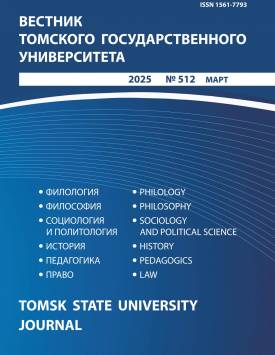Transindividuation in the digital age: Bernard Stiegler on the changing third memory
The article explores Bernard Stiegler's philosophical ideas on the relationship between man and technology, focusing on changes in third memory in the context of modern digital technologies and artificial intelligence. The author analyzes Stiegler's concepts such as epiphilogenesis, tertiary retention, and transindividuation, and applies them to contemporary digital technologies. The study begins with an overview of futurological concepts of post-industrial society and a critique of the current state of knowledge. Stiegler argues that technology is integral to human cognition and evolution, which is supported by the concept of epiphylogenesis. External technical objects, such as writing and digital technologies, play a key role in the formation and preservation of knowledge and memories. Stiegler distinguishes three types of memory: genetic, epigenetic and epiphylogenetic, where the third memory is related to technical objects and their role in human cognition. The process of transindividuation, according to Stiegler, is the mutual constitution of the technical environment and society that shapes human culture and technology. The author of this article analyzes how tertiary retentions, while participating in the process of transindividuation, constantly modify the play between primary and secondary retentions and protentions, which gives rise to new patterns of transindividuation. Stiegler also draws attention to the threats of the digital age, such as the proletarianization of knowledge and automation, which can lead to the disintegration of traditional forms of transindividuation and systemic stupidity. Stiegler concludes by calling for a therapeutic approach in the use of digital technologies to avoid their poisonous effects and deploy new pathways of transindividuation. The article emphasizes the importance of critically reflecting on the impact of digital technologies on human cognition and culture, suggesting a politics of memory that will enable individuals to preserve their aesthetic and productive capacities in the face of the pervasive interference of automated digital technologies. The author declares no conflicts of interests.
Keywords
digital technologies, proletarianization, transindividuation, Bernard Stiegler, tertiary memory, tertiary retentionsAuthors
| Name | Organization | |
| Moskovets Semyon A. | National Research Tomsk State University | moskovets.tsu@yandex.ru |
References

Transindividuation in the digital age: Bernard Stiegler on the changing third memory | Vestnik Tomskogo gosudarstvennogo universiteta – Tomsk State University Journal. 2025. № 512. DOI: 10.17223/15617793/512/8
